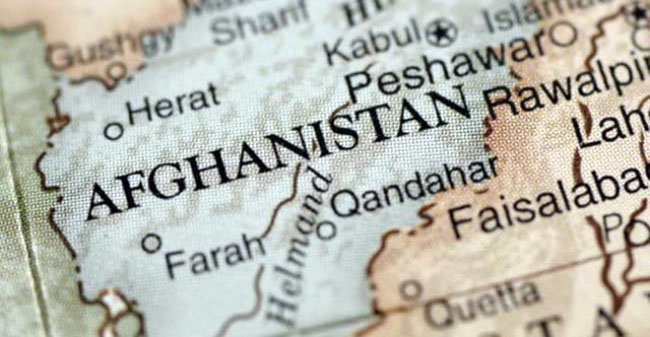Nowadays, everybody has a question on the tip of his tongue what would be the plan of President Donald Trump for Afghanistan? Many of Political commentators and experts in Afghanistan are pessimist about any significant changes in U.S. policy toward Afghanistan, citing the institutional nature of U.S. policy formulation. Thus, Trump’s campaign was largely focused on domestic issues such as immigration and the economy, which also hints that Afghanistan may not be at the top of his list of priorities. Some in Kabul are even worried that the new Washington administration would reduce its involvement in Afghanistan, referencing Trump’s general distaste for U.S. involvement in the affairs of other countries.
However, there is also a level of optimism in Afghanistan. Firstly, Trump promised during his campaign that he would eliminate Daesh (the So-called Islamic State). It is not probable that he withdraw American forces from Afghanistan while Daesh is an active threat for Afghanistan and the region. So, some people are hopeful and waiting to see what Trump has for Afghanistan. Secondly, the Afghan-war is not merely an Afghan war; it is a regional war and American war, too. So public expects the new administration will change its policy toward Afghanistan by forcing Taliban backing countries to deal with terrorist sanctuaries and pressure the Taliban to come to the negotiation table or face the consequences. This argument is backed by a Trump adviser’s comments in an interview that appeared in Reuters. Overall, not only Afghans but the world expects Trump to end the legacy in this war-torn country.
Recently, Afghanistan’s National Unity Government (NUG) asked the incoming U.S government to increase pressure on Pakistan in order to get them to stop backing insurgent groups that continue to wage war against Afghans. The spokesmen for President Ashraf Ghani and Chief Executive Officer (CEO) Abdullah Abdullah warned Pakistan that their current policy would have serious repercussions for Pakistan and Afghanistan, suggesting Islamabad should review its stance on terrorism. “The new administration must manage its cooperation with Afghanistan by completely understanding the military situation in Afghanistan,” said Mujiburrahman Rahimi, spokesman to CEO Abdullah Abdullah. “Over the past two years, relations between Afghanistan and America have been strategic relations and like two good partners, these partnerships would further develop under the incoming U.S administration and would move on the right direction,” said presidential spokesman Haroon Chakhansuri.
In addition, the CEO’s spokesman reiterated calls for the implementation of election reforms in Afghanistan. “The issue of electoral reforms in the political agreement has been an important priority of the chief executive officer which also includes the establishment of a constitution amendment commission, rollout of electronic national identity cards, holding the parliamentary and district council elections and moving toward the constitutional amendment Loya Jirga,” Rahimi added.
Meanwhile, former Afghan president Hamid Karzai has also asked the US government under president Donald Trump to take steps to root out terrorist hideouts and safe havens out of Afghanistan. Karzai called on Trump to review the current U.S anti-terrorism policy and avoid making the same mistakes made by the Barack Obama administration in dealing with terrorism. Karzai also suggested the Trump government increase cooperation with regional powers such India, China and Russia in order to combat terrorism effectively. “My message to president-elect Donald Trump is to thoroughly review the war policy against terrorism and militancy and target terrorists roots and the safe havens where terrorists are trained and armed,” said Karzai.
Karzai criticized the international community for not focusing on the real terror hideouts which have been operating there for decades. “When I talk about roots of terrorism, I want to point towards the area where they are trained and they have safe havens and training camps. I do not talk only about Daesh or some other groups, I want to say that these groups have been ignored by the international community for decades,” Karzai added.
Overall, the issue of Afghanistan has become very complicated. Trump's "America First" doctrine has left many wondering if he will be willing to continue spending billions of dollars funding Afghanistan, particularly given his declaration that: "We're getting out of the nation-building business". So far, he has shown little interest in Afghanistan, although his most recent comments suggested he favored keeping troop numbers at around 5,500, the level they were intended to reach by the end of the year before Obama shelved the plan and set the number at 8,400. But in other comments, he has described America's involvement in Afghanistan as "a terrible mistake" and appeared to set conditions on the U.S. commitment to NATO, which leads the Resolute Support advise-and-assist mission in Afghanistan. Security officials in Kabul say the threat that Islamic State militants could build their presence in Afghanistan should act as an incentive to keep U.S. force in place, although they admit they remain in the dark about Trump's intentions.
For Trump, the foremost challenge in Afghanistan would be to bring peace by dealing with the Taliban, which has so far not responded seriously to U.S. and Afghan calls for peace talks. By the same token, the United States has found it difficult to defeat the group militarily and also put an end to its mission in Afghanistan successfully. More importantly, Trump needs to increase the engagement of China, Pakistan, India, Iran, Russia, and other Central Asian countries to play constructive roles in bringing peace to Afghanistan. It is worth mentioning that Russia and Iran have also started cooperating with the Afghan Taliban in a bid to block gains by the Islamic State (ISIS) in Afghanistan. This will also have adverse implications for the Afghan government, which is the primary player fighting ISIS in the country.

